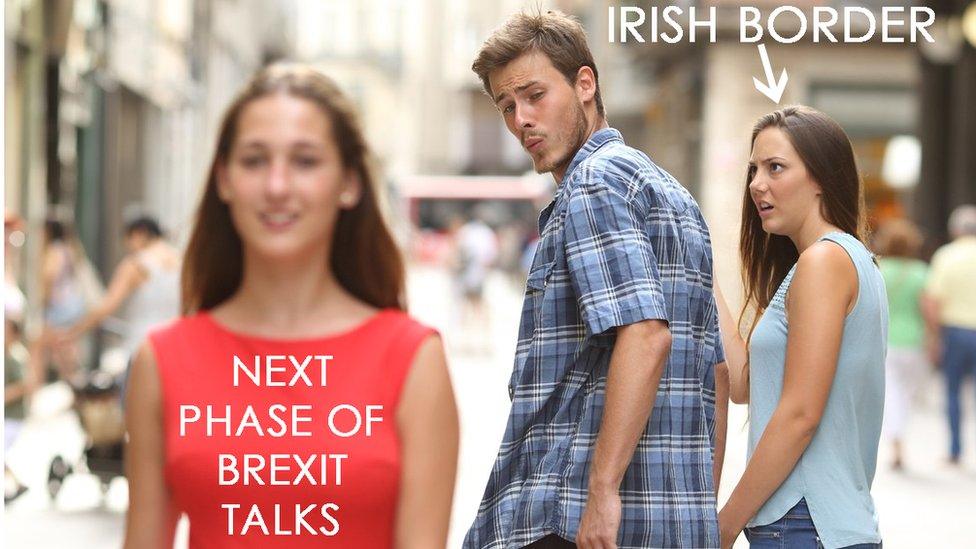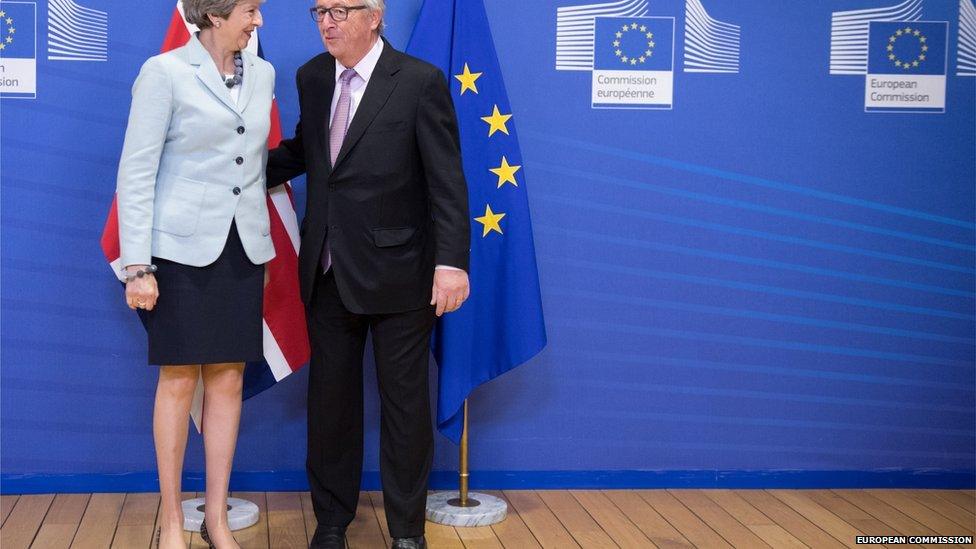Things you need to know about the Brexit 'breakthrough'
- Published

Theresa May has reached an agreement that will let her move Brexit talks on to the next stage.
It's been a testing week for the Prime Minister however the agreement she reached with the EU is a big step in the process of leaving.
Next Thursday, European leaders will get together to see if they back the proposals.
What does it all mean? Here's what you need to know.
What's the deal?
The biggest sticking point in these negotiations so far has been the issue of the Irish border.
When the UK leaves, Northern Ireland will be the only part of the country that will have a land border with the European Union.
At the moment, people can walk across the border from Northern Ireland to Republic of Ireland freely.
In the deal, there's a guarantee that there will be "no hard border". So we expect no passport checkpoints when you cross over.
The government say that as part of the deal, they will pay a fee, known as the "divorce bill" for leaving, thought to be around £35bn and £40bn according to Downing Street.
It also protects the rights of EU citizens to live, work or study in the UK and vice versa when Britain leaves the EU.
Is it a breakthrough?
Yes according to the European Commission President Jean-Claude Juncker.
The deadline for a deal was Sunday midnight and Theresa May had expected to secure a deal earlier this week but her efforts were obstructed by Northern Ireland's Democratic Unionist Party.

Theresa May and Jean Claude Junker
The Conservatives didn't win enough seats in the general election in June to run the country alone, so they need DUP support to keep them in power.
On Monday leader Arlene Foster told Theresa May that she could not support the governments plan to keep Northern Ireland aligned with EU laws.
As a party that wants Northern Ireland to remain united with the rest of the UK, the DUP were unwilling to be treated differently.
The DUP say that there has been six "substantial" changes to the original document they originally opposed but Foster said there was still "more work to be done".
What's Phase 2?
Now they've agreed on the big three issues we mentioned earlier, it's time to talk about what Britain's relationship with the European Union will look like in the future.
This is expected to be the difficult bit. EU president Donald Tusk said: "Breaking up is hard, building a new relationship is harder".
These talks are made more complex because they're about how Britain trades with the European Union, how they cooperate around defence and security arrangements.
When are trade talks not trade talks?
Because trade talks can take years to sort out, the UK and EU have to come up with an agreement on what a transitional period looks like first.
So rather than negotiating the intricacies of a trade deal, they'll be trying to figure out how to negotiate it.
Nothing is agreed until everything is agreed
The EU negotiates on this basis, so everything that's been agreed today may well unravel if talks for phase two go wrong.
Find us on Instagram at BBCNewsbeat, external and follow us on Snapchat, search for bbc_newsbeat, external